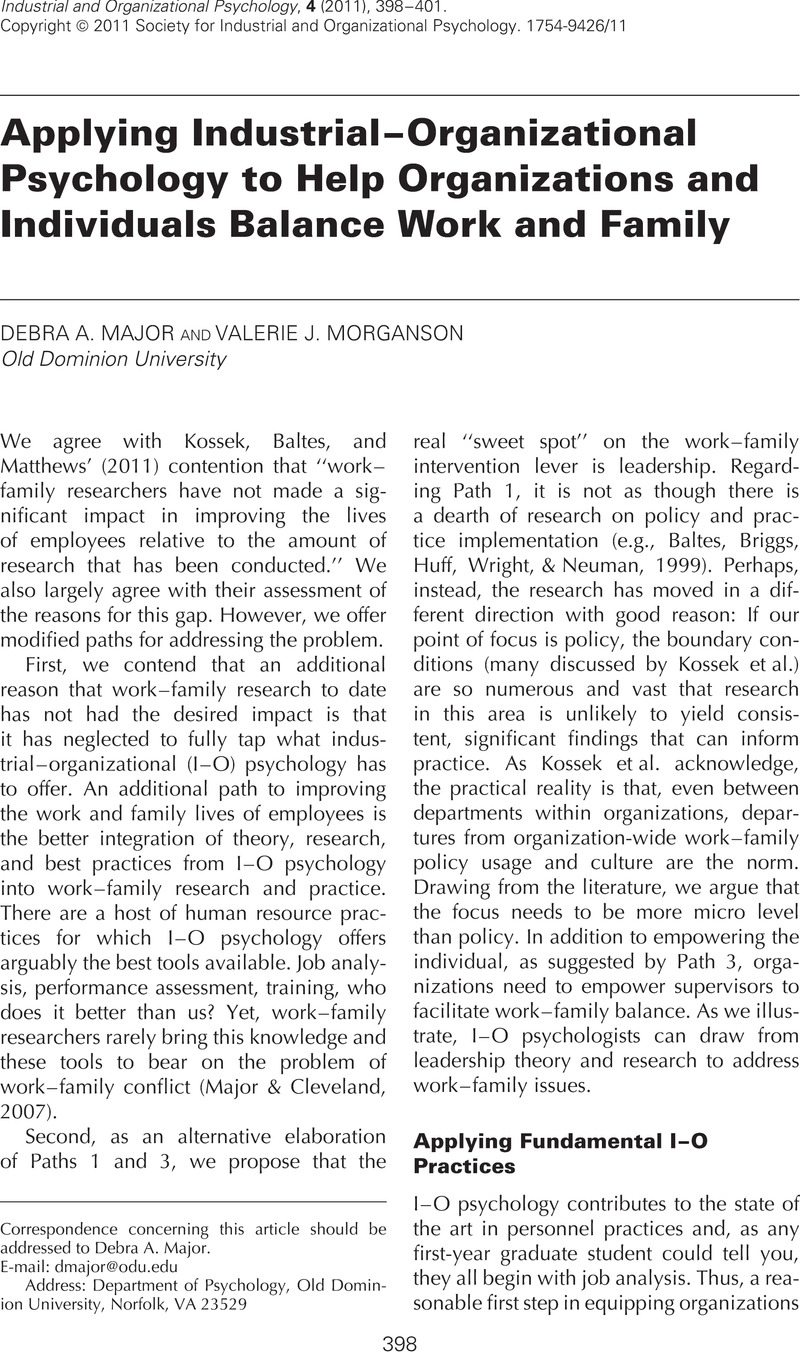Crossref Citations
This article has been cited by the following publications. This list is generated based on data provided by
Crossref.
Kossek, Ellen Ernst
Baltes, Boris B.
and
Matthews, Russell A.
2011.
Innovative Ideas on How Work–Family Research Can Have More Impact.
Industrial and Organizational Psychology,
Vol. 4,
Issue. 3,
p.
426.
Morganson, Valerie J.
Rotch, Michael A.
and
Christie, Ashley R.
2015.
Being Mindful of Work–Family Issues: Intervention to a Modern Stressor.
Industrial and Organizational Psychology,
Vol. 8,
Issue. 4,
p.
682.
Morganson, Valerie J.
Major, Debra A.
and
Litano, Michael L.
2017.
A Multilevel Examination of the Relationship Between Leader–Member Exchange and Work–Family Outcomes.
Journal of Business and Psychology,
Vol. 32,
Issue. 4,
p.
379.
Litano, Michael L.
and
Morganson, Valerie J.
2020.
A tale of two leaders: employees’ work–family experiences in the context of dual leadership.
Journal of Managerial Psychology,
Vol. 35,
Issue. 7/8,
p.
631.
Beutell, Nicholas J.
and
Gopalan, Neena
2021.
Pathways to work-family synergy: resources, affect and wellbeing.
Journal of Family Studies,
Vol. 27,
Issue. 4,
p.
556.





